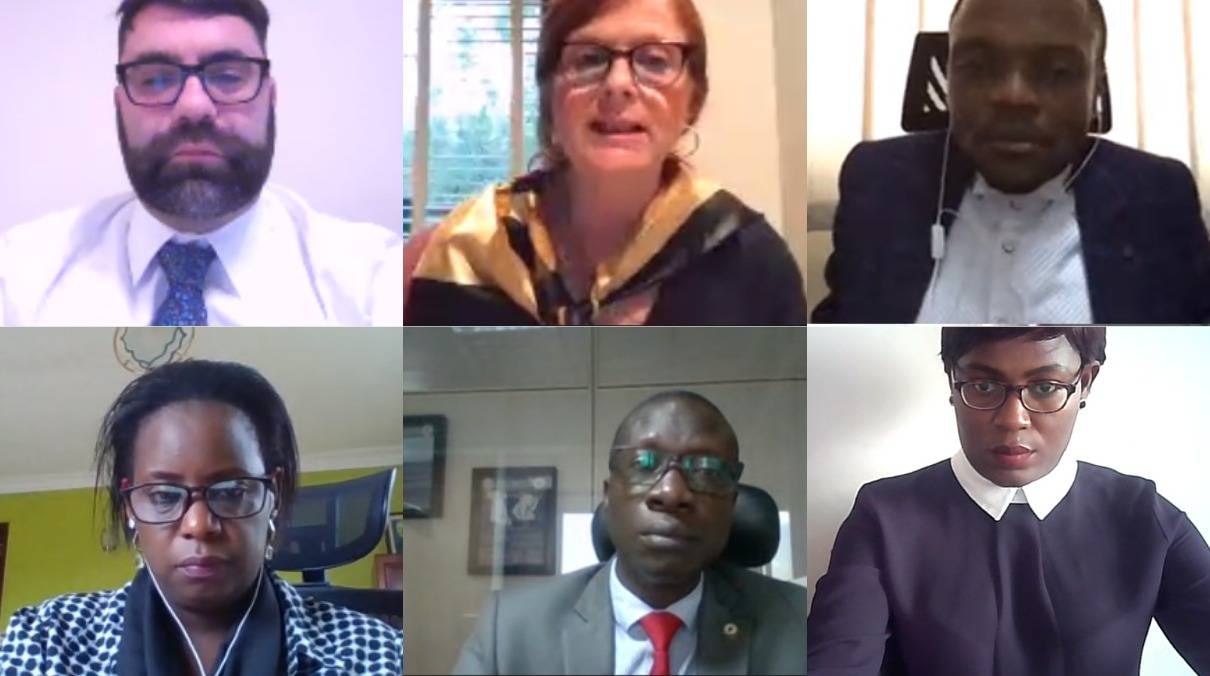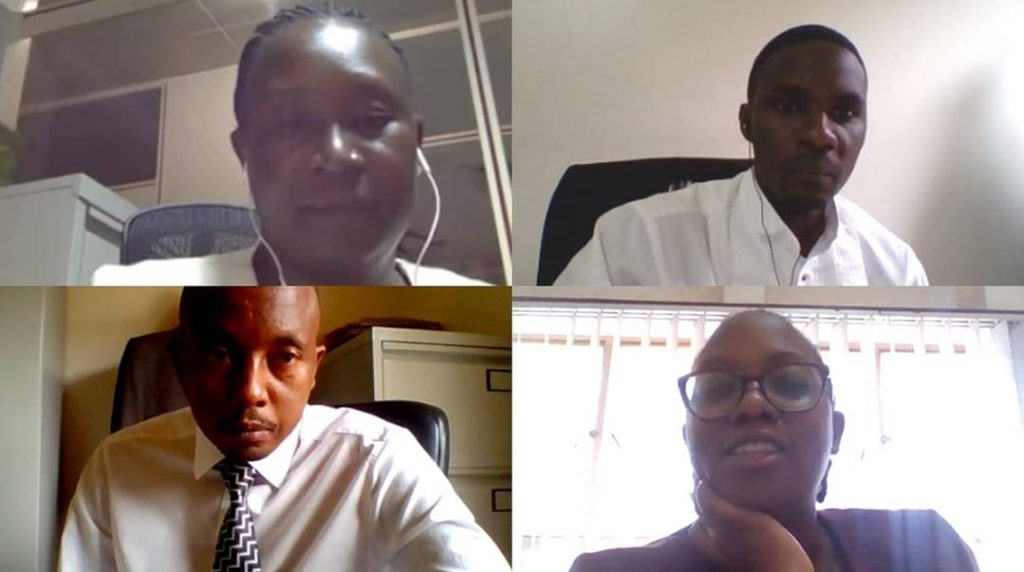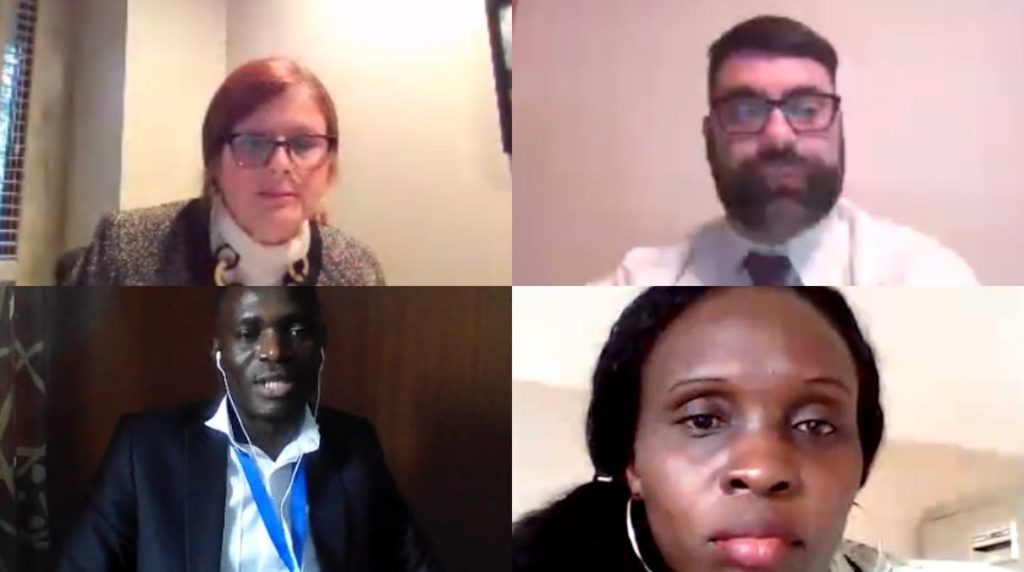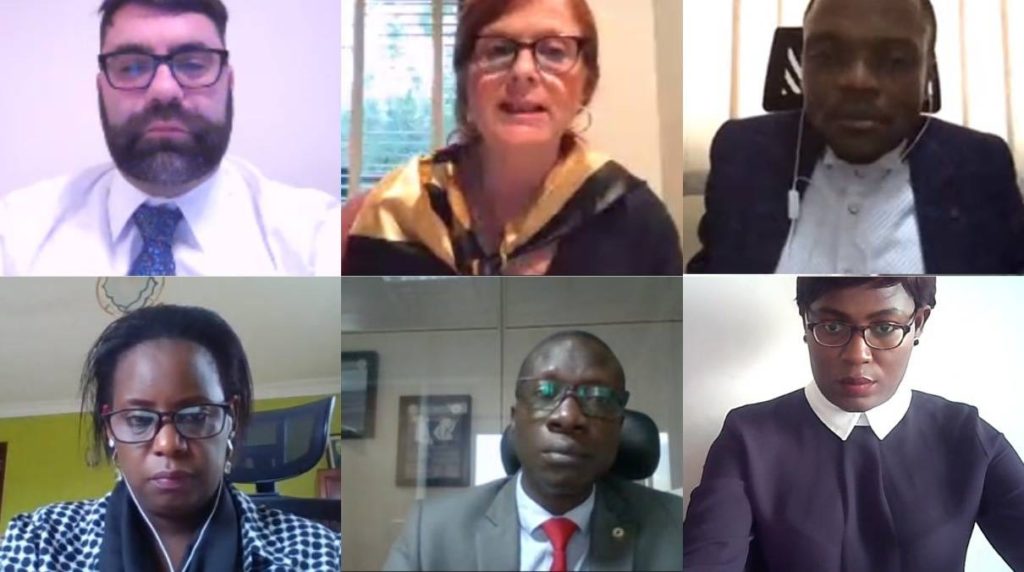
In October 2020, the IIJ convened an online workshop for 42 prosecutors from Uganda aimed at enhancing their understanding of mutual legal assistance (MLA) processes and developing skills to enable them to seek and obtain evidence and support from foreign counterparts in terrorism cases.
Since its inception, programmes under the IIJ Global Central Authorities Initiative have been building Central Authority practitioner capacity to leverage international judicial cooperation through the use of multilateral and bilateral agreements for extradition and MLA in criminal matters. In September 2018, the IIJ published the IIJ Good Practices for Central Authorities to guide the work of Central Authorities and set out the institutional, legal and practical considerations needed to establish and support these important institutions. The IIJ Good Practices for Central Authorities elucidate Good Practice 9 of the Global Counterterrorism Forum's (GCTF) Rabat Memorandum on Good Practices for Effective Counterterrorism Practice in the Criminal Justice Sector.
The genesis for this national-level focus came from a formal request from Uganda during a pre-workshop consultation for another programme under this Initiative, the East Africa Regional Online Workshop for Developing Standardised Guidelines for MLA on Criminal Matters held online on 13 – 17 July 2020. Uganda requested an interactive workshop focused on the effective and efficient processing of MLA requests and the IIJ Good Practices. Building on the IIJ’s successful pivot to the online environment during the COVID-19 global health pandemic, the IIJ leveraged the workshop’s online delivery to include criminal justice stakeholders in Uganda, who, under normal circumstances, might not be able to attend such programmes due to geographic restrictions.
The workshop consisted of three online sessions, each attended by 12 to 15 practitioners. Representatives of the International Crimes and Anti-Corruption Departments of the Office of the Director of Public Prosecutions (ODPP), as well as prosecutors from ODPP offices located in the Central Region of Uganda, joined the first two meetings. The final online session engaged prosecutors working in the Eastern, Northern and Western regional offices.
Each of the sessions were structured in two parts. The first part facilitated an in-depth discussion on a pre-recorded presentation shared with participants in advance. The presentation, delivered by a prosecutor from the U.S. Department of Justice’s Office of International Affairs, focused on the differences between formal and informal means of cooperation and the requirements for obtaining these types of assistance from other countries. Practitioners from the United Kingdom Central Authority (UKCA) (responsible for coordinating a majority of MLA requests in English, Wales and Northern Ireland), and Scotland’s Central Authority & International Law team, also participated, sharing their experiences in issuing, receiving and affording MLA requests to illustrate key points from the presentation. During the second part of the session, participants worked through a practical fact-pattern exercise, applying the relevant good practices and principles of drafting, submitting and processing MLA requests.
For more information on this expert meeting or the IIJ Global Central Authorities Initiative, contact Programme Manager Adrian Carbajo.



